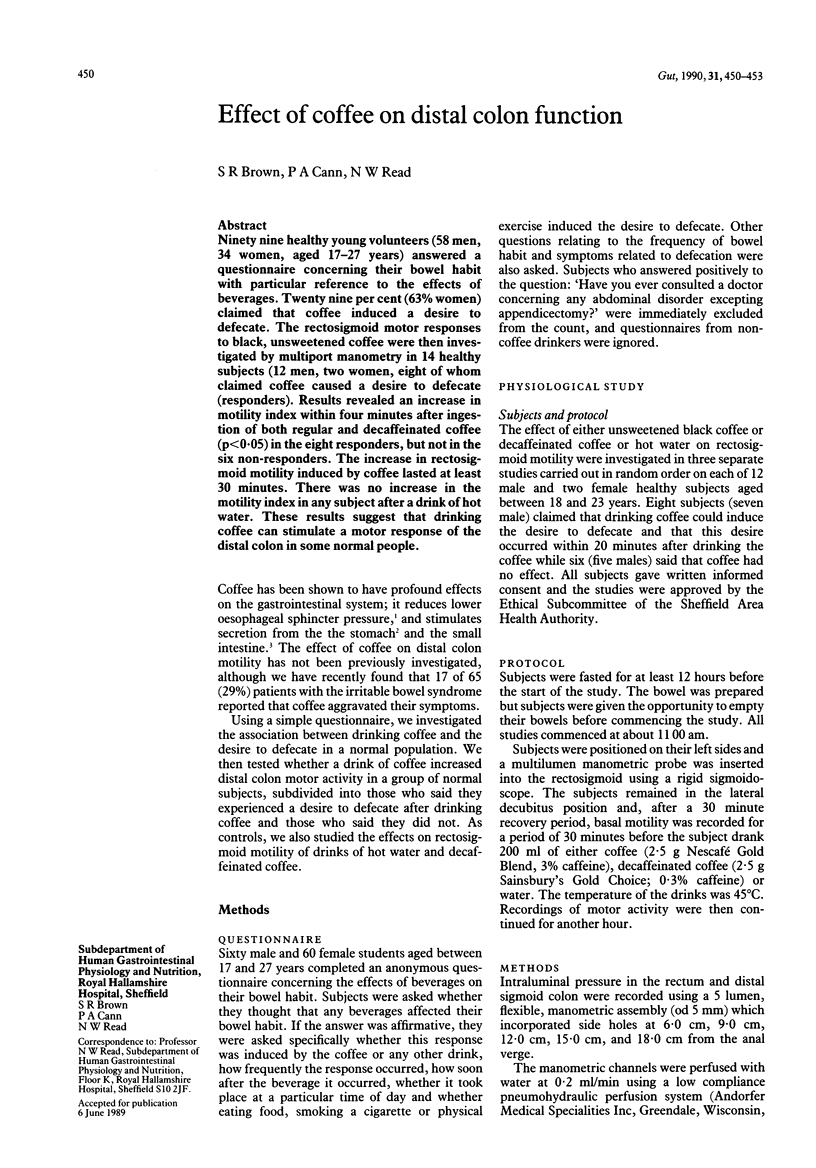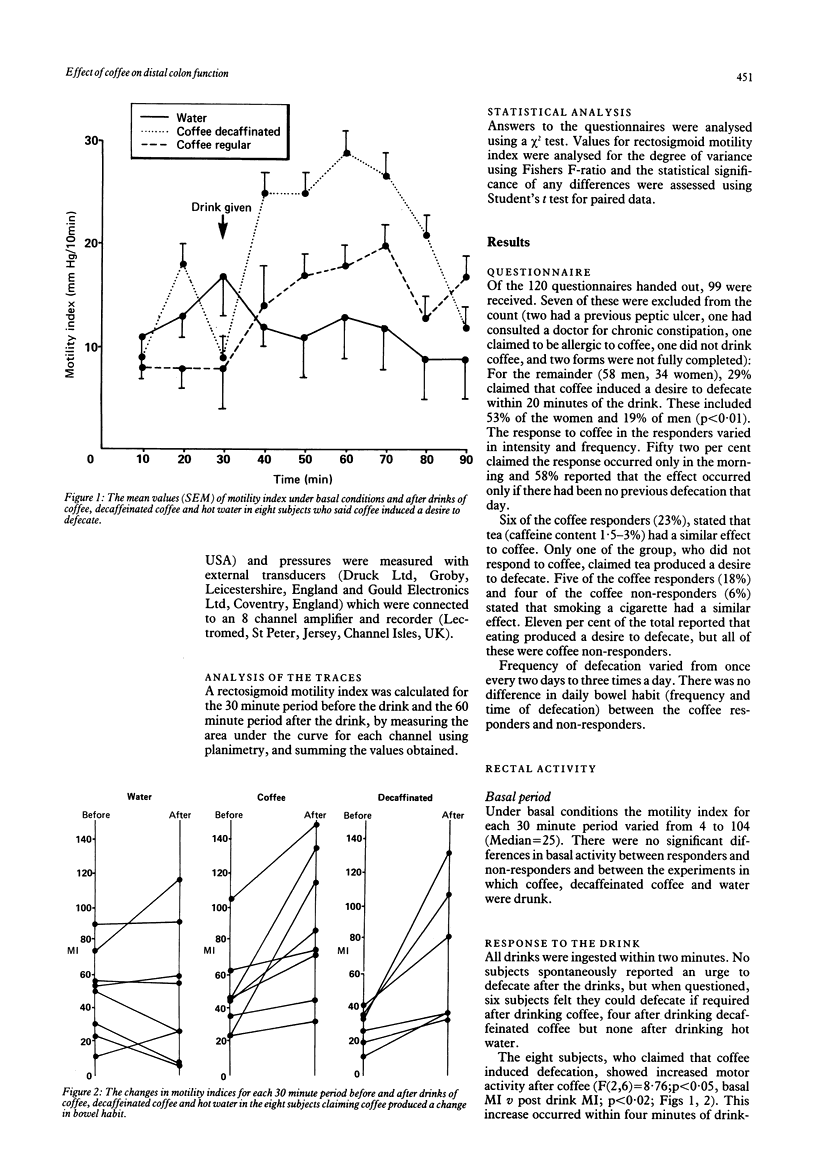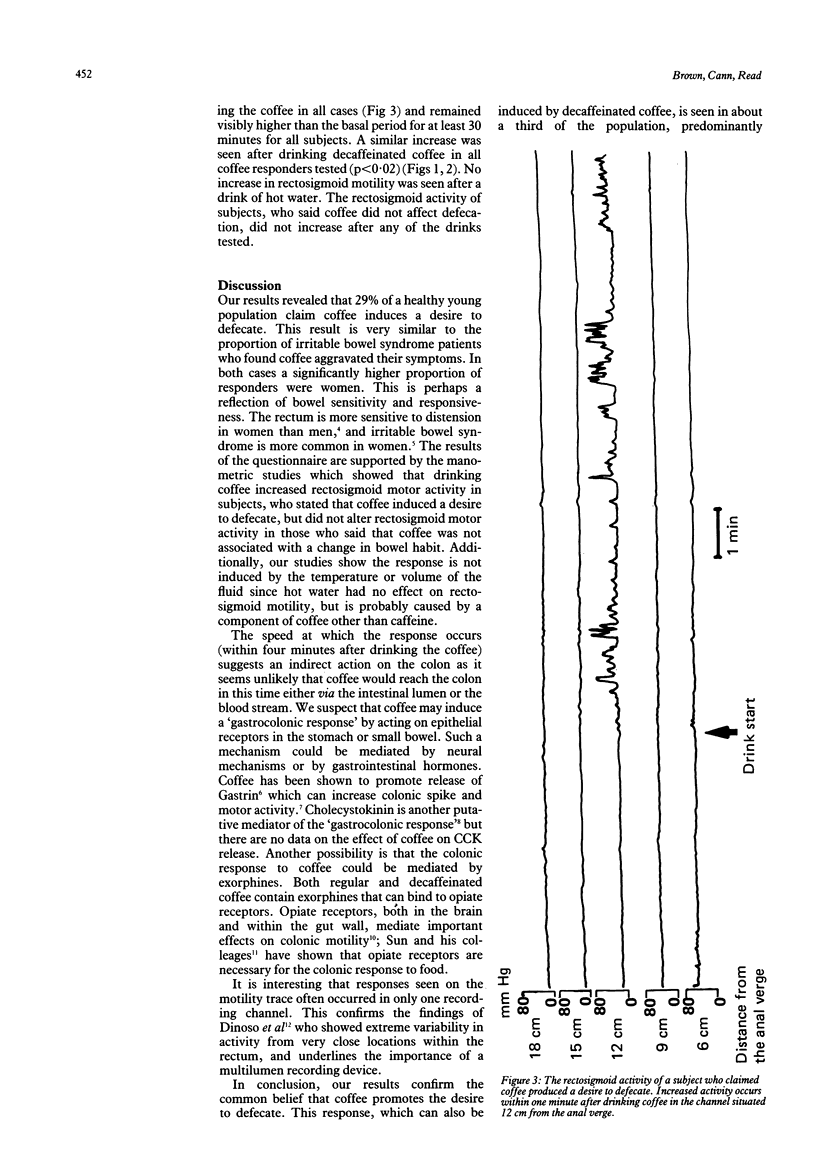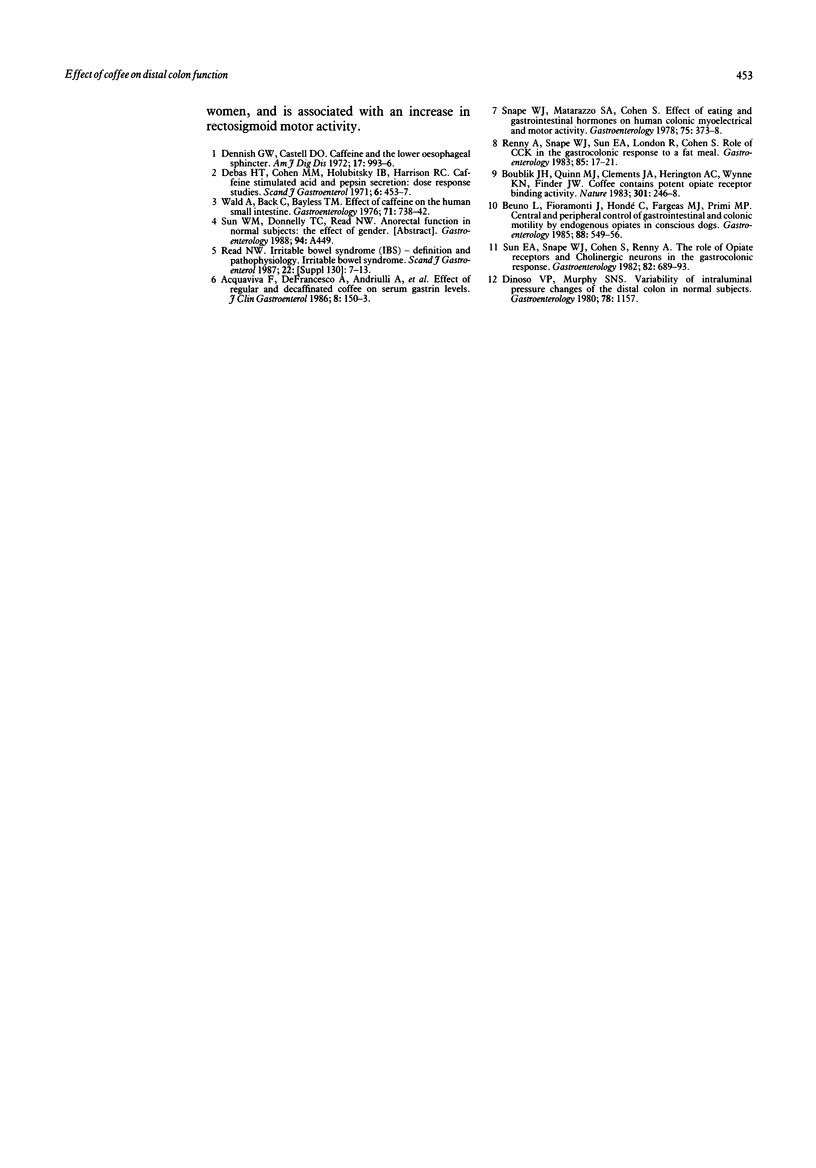Abstract
Ninety nine healthy young volunteers (58 men, 34 women, aged 17-27 years) answered a questionnaire concerning their bowel habit with particular reference to the effects of beverages. Twenty nine per cent (63% women) claimed that coffee induced a desire to defecate. The rectosigmoid motor responses to black, unsweetened coffee were then investigated by multiport manometry in 14 healthy-subjects (12 men, two women, eight of whom claimed coffee caused a desire to defecate (responders). Results revealed an increase in motility index within four minutes after ingestion of both regular and decaffeinated coffee (p less than 0.05) in the eight responders, but not in the six non-responders. The increase in rectosigmoid motility induced by coffee lasted at least 30 minutes. There was no increase in the motility index in any subject after a drink of hot water. These results suggest that drinking coffee can stimulate a motor response of the distal colon in some normal people.
Full text
PDF



Selected References
These references are in PubMed. This may not be the complete list of references from this article.
- Acquaviva F., DeFrancesco A., Andriulli A., Piantino P., Arrigoni A., Massarenti P., Balzola F. Effect of regular and decaffeinated coffee on serum gastrin levels. J Clin Gastroenterol. 1986 Apr;8(2):150–153. doi: 10.1097/00004836-198604000-00009. [DOI] [PubMed] [Google Scholar]
- Boublik J. H., Quinn M. J., Clements J. A., Herington A. C., Wynne K. N., Funder J. W. Coffee contains potent opiate receptor binding activity. Nature. 1983 Jan 20;301(5897):246–248. doi: 10.1038/301246a0. [DOI] [PubMed] [Google Scholar]
- Bueno L., Fioramonti J., Hondé C., Fargeas M. J., Primi M. P. Central and peripheral control of gastrointestinal and colonic motility by endogenous opiates in conscious dogs. Gastroenterology. 1985 Feb;88(2):549–556. doi: 10.1016/0016-5085(85)90520-7. [DOI] [PubMed] [Google Scholar]
- Debas H. T., Cohen M. M., Holubitsky I. B., Harrison R. C. Caffeine-stimulated acid and pepsin secretion: dose-response studies. Scand J Gastroenterol. 1971;6(5):453–457. doi: 10.3109/00365527109180725. [DOI] [PubMed] [Google Scholar]
- Dennish G. W., Castell D. O. Caffeine and the lower esophageal sphincter. Am J Dig Dis. 1972 Nov;17(11):993–996. doi: 10.1007/BF02239138. [DOI] [PubMed] [Google Scholar]
- Read N. W. Irritable bowel syndrome (IBS)--definition and pathophysiology. Scand J Gastroenterol Suppl. 1987;130:7–13. doi: 10.3109/00365528709090994. [DOI] [PubMed] [Google Scholar]
- Renny A., Snape W. J., Jr, Sun E. A., London R., Cohen S. Role of cholecystokinin in the gastrocolonic response to a fat meal. Gastroenterology. 1983 Jul;85(1):17–21. [PubMed] [Google Scholar]
- Snape W. J., Jr, Matarazzo S. A., Cohen S. Effect of eating and gastrointestinal hormones on human colonic myoelectrical and motor activity. Gastroenterology. 1978 Sep;75(3):373–378. [PubMed] [Google Scholar]
- Sun E. A., Snape W. J., Jr, Cohen S., Renny A. The role of opiate receptors and cholinergic neurons in the gastrocolonic response. Gastroenterology. 1982 Apr;82(4):689–693. [PubMed] [Google Scholar]
- Wald A., Back C., Bayless T. M. Effect of caffeine on the human small intestine. Gastroenterology. 1976 Nov;71(5):738–742. [PubMed] [Google Scholar]



